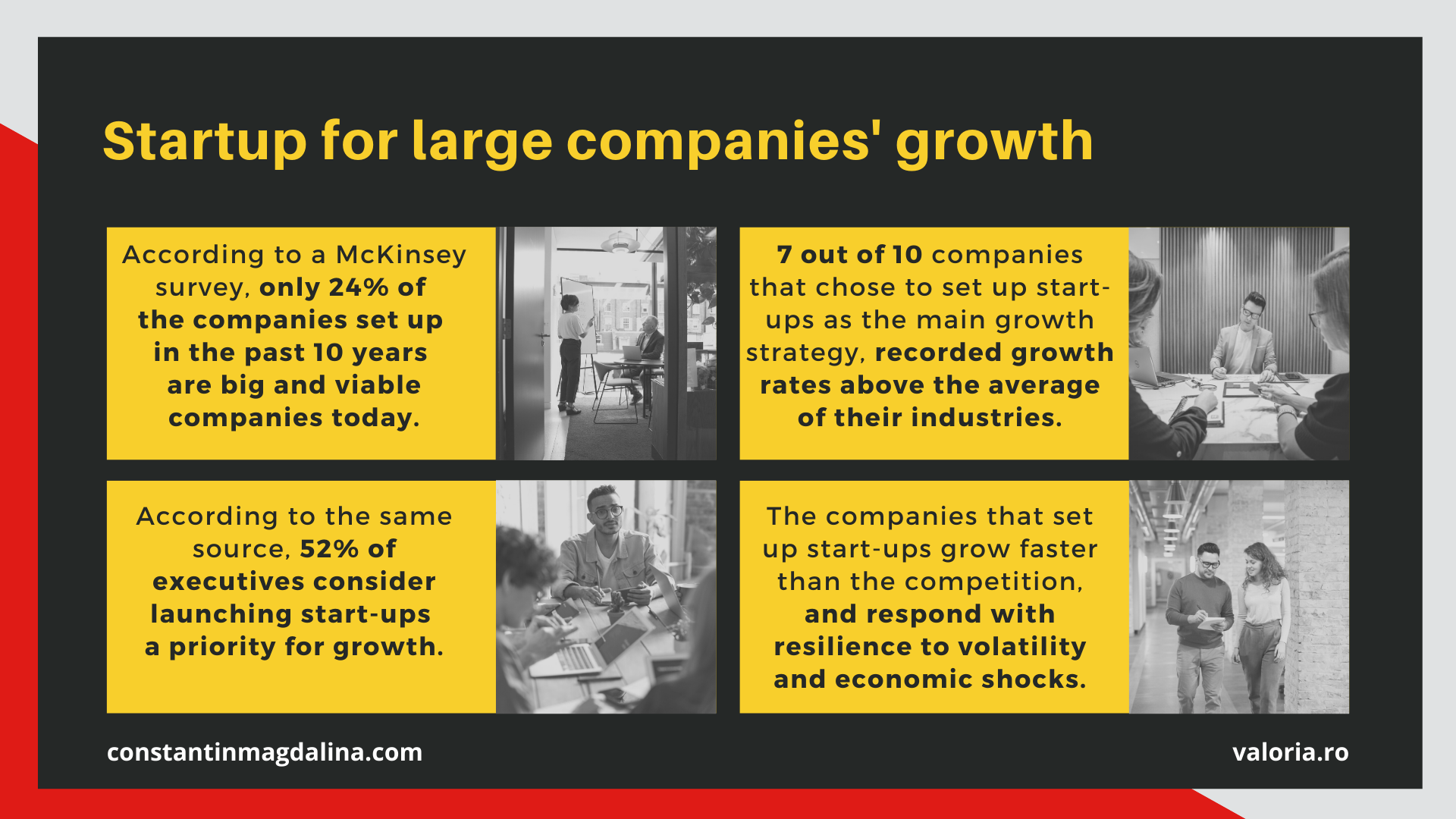Recessions are often periods of innovation and, perhaps surprisingly for some, investment. But the growing interest of CEOs in the development of companies could reveal that large companies have gone shopping or for start-ups. It is good when it is so, only the percentage of decision-makers who manage to grow their companies happens is small.
According to a McKinsey study, only 24% of the companies launched in the last 10 years are large and viable companies today. However, companies that prioritize business building tend to grow faster than the competition, respond with greater resilience to volatility and economic shocks, and as they gain experience in building business, they are more successful.
About 74% of companies that chose to start up a new business as their main growth strategy recorded growth rates above the average of their industries.
The causes of success or failure are multiple: the determinant factor for the result remains leadership. This is the most important differentiator for the success of building any new company. After all, behind the results are the people, the leadership, and the decisions it makes. Through the decisions taken, both strategically and operationally, leaders shape and inspire the actions of employees.
As obvious as it is sometimes, the truth of companies' performance lies in leadership. According to the same sources, 52% of executives consider starting start-ups as a priority for growth. The value is maximized when the owner or manager can generate the largest cash flows.
Many venture capital firms believe that nothing matters as much as the entrepreneur/decision-maker and the team that runs the new business. In contrast, parent companies, like a parent raising a child, provide ongoing development support to the company they build. It gives it financing, gives it information, transfers knowledge and brand identity, gives it people to guide it properly to be successful in the market. And it is this assistance that provides a competitive advantage over independent start-ups.
What do parent companies expect? The reward of additional revenue, new products, services, and business models. Are they easy to obtain? Nothing guarantees success. It is difficult to reconcile the stability and sometimes the inertia of operating a large company with the agility of a start-up. And this is where the importance of leadership comes in. The leader of a large company has to overcome internal obstacles individually but also at the company level to start the new company project. If it is also listed, the parent company the suspicion of investors is lurking that the business model in which they put their money is no longer up to date. Therefore, the leader has the dilemma of going or not for a start-up.
Where to get the leader who starts the project of a new company with the assistance of a parent company? Well, McKinsey data show that in 2 out of 3 cases the leader of the startup comes from within the organization. It is good? It is bad? We do not know. What we do know is that the success rate is low, as I said at the beginning.
Perhaps, marked by the inertia of a dominant organization in the market, the start-up leader from the parent organization no longer owns the adaptability and the desire for the success of a survival instinct that requires you to lead a start-up.
It often happens that the interface with the parent company is important for wiring to its internal reality, accessing people and resources relevant to the development of the start-up project associated with the parent company. That is why the successful management of the challenge lies in identifying a person with an entrepreneurial spirit, someone with an extraordinary impulse for the development of the project, a sales instinct, and a desire, even a frond, for the patinated recipes of the past.
- Some start-up leaders add value through links to other activities in their portfolio, such as using already established sales channels to reach new customers or sharing existing production infrastructure.
- Other leaders add value by replicating distinctive skills such as operational or marketing excellence.
- Some add value by providing better governance and incentives for the management team.
- Finally, others add value through distinct relationships they maintain at the governmental level, regulators, or customers.
Starting a startup offers a unique opportunity for parent companies: the mix between the wisdom and resources of a company dedicated to the agility and rapid growth potential of a start-up.
This is a combination with significant potential for success. Revenue diversification, accelerating organic growth, innovation, or the rapid response to the changing needs of its old and new customers sometimes lies in the decision of the leaders of the parent companies to start the new company project.



































